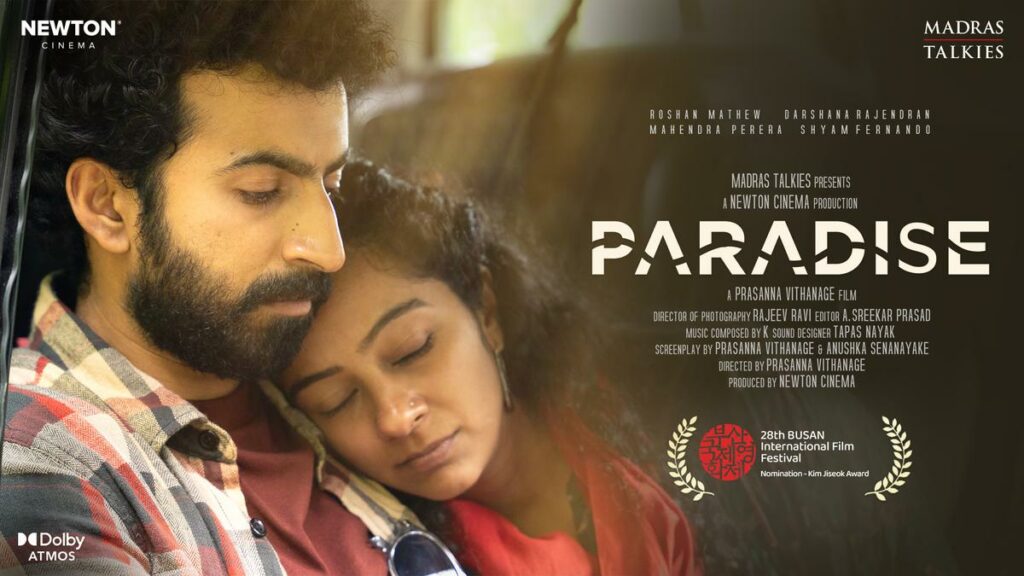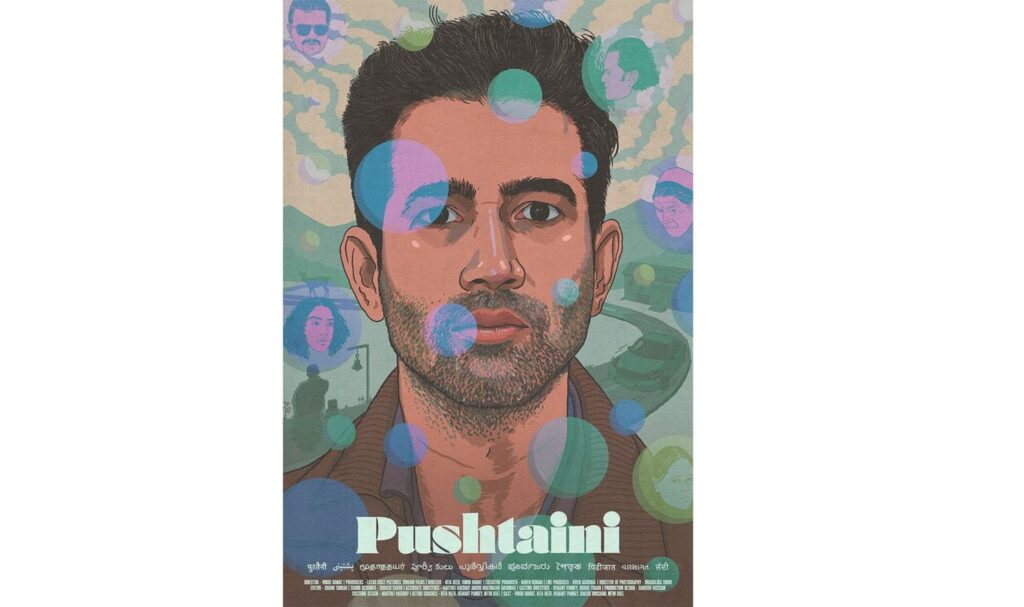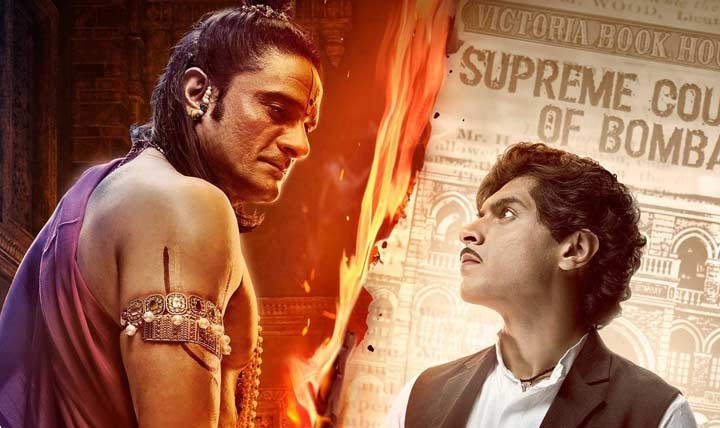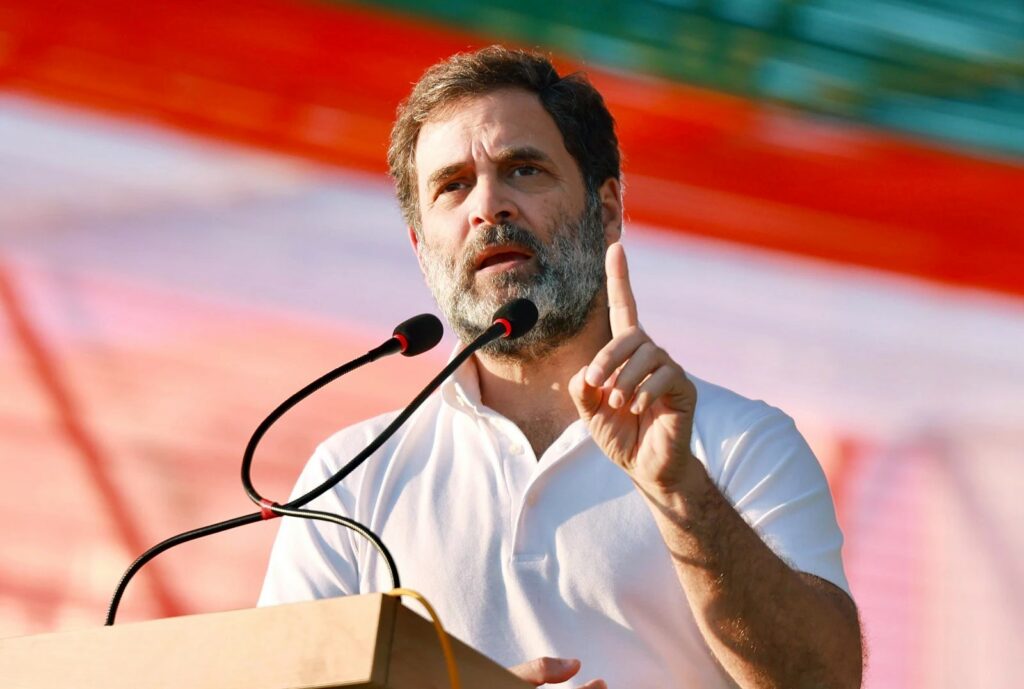Filmmaker Prasanna Vithanage’s Paradise is a Sri Lankan-Indian joint venture produced by Newton Cinema and presented by Mani Ratnam’s Madras Talkies. The movie is a tri-lingual in English, Sinhala and Malayalam.
Paradise tells the story of a couple from Kerala, Kesav (Roshan Mathew) and Amritha (Darshana Rajendran), who visit a hill station in Sri Lanka to celebrate their fifth wedding anniversary. Their trip coincides with the mass protests in April 2022 after the country declares bankruptcy. Hence, there are agitations at various places for basic necessities of life.
But Kesav and Amritha are not bothered much and they start spending quality time with each other. Kesav’s happiness doubles after his upcoming web series gets greenlit by Netflix. However, their happiness is short-lived after they are robbed at night when they are fast asleep. Both of them lose their gadgets. Kesav faces a bigger loss as his work related stuff was in the iPad and mobile phone, which got stolen. They lodge a police complaint.
This reviewer hadn’t seen the film’s trailer before watching the film and that turned out to be a good idea since the trailer gives away a lot.
As the couple start their trip, one is constantly reminded of the impending protests in the background. And that is enough to not only keep you hooked but also anxious of things turning sour for them. Once the robbery takes place, the narrative goes into a different drive.
What’s more impressive is that the movie is not narrated like a crime thriller with elements to keep you hooked, especially through the technical departments. It follows a gradual narrative and has enough material naturally to keep things tense. The film scores the highest during the handling of the ending moments that provide a jolt. Along with that, Paradise also deserves brownie points for portraying the slow and seamless cracks in the relationship between Kesav and Amritha.
The characters are seen giving references of different versions of Ramayana. During a conversation, one character speaks about the Jain version of the epic. This appears like a casual conversation until you experience the ending moments, which leave you speechless as well as with a few questions.
There is not much of a negative point in Paradise. The only little issue here is that the two of them face a personal problem after their stuff is stolen and are not directly affected by the mass protests. Of course, the robbery can be an indirect reason for the lack of amenities in Sri Lanka at that time. But one would expect them to face something directly related to the volatile situation.
Roshan Mathew and Darshana Rajendran have proven their talent on numerous occasions over the years. They are flawless here too. There are various moments when they speak a lot without saying much, especially when their relation is going through a gradual turmoil. The movie also has some fine performances from numerous supporting actors.
Overall: Paradise is a finely narrated drama that refuses to leave you much after it ends.
Rating: 4 out of 5
Director: Prasanna Vithanage
Producers: Newton Films
Cast: Roshan Mathew, Darshana Rajendran
Also read: Pushtaini review: A true-blue independent film with a big heart



